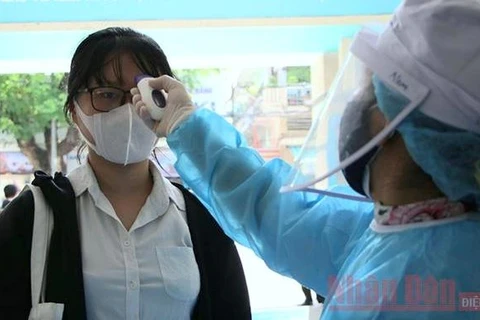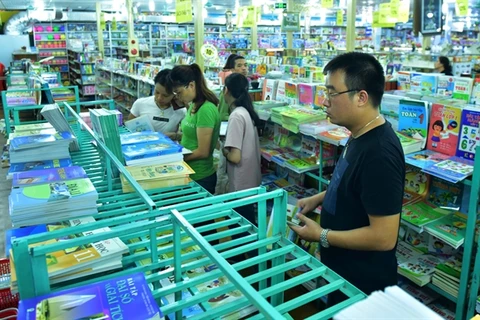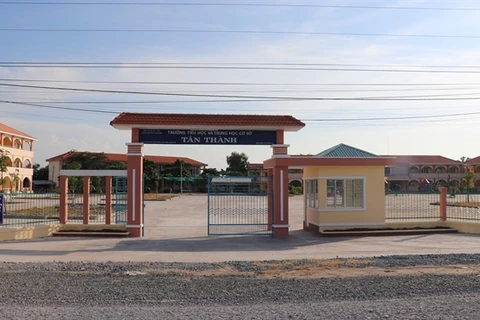HCM City (VNA) – Ho Chi Minh City’s Department of Education and Training has ordered the heads of local educational institutions to strengthen preventive measures against COVID-19 for the opening ceremony for the upcoming new academic year.
In a document sent late last week, the department called on all pre-school, general education and continuing education institutions to continue with a set of criteria to evaluate safety.
They will only be allowed to open if they ensure safety and pandemic prevention and control.
Each needs to set up a committee for COVID-19 prevention and control and develop an epidemic prevention and control plan.
Before the new academic year begins on September 5, they must clean and disinfect classrooms, devices, teaching tools, and toys and ensure there is proper ventilation in classrooms.
They must ensure there are places for washing hands, clean water, hand sanitisers, soaps, paper towels, and trash cans for teachers, other staff and students.
Besides, there must be electronic thermometers to measure the temperature of every entrant, face masks and essential medical supplies and equipment.
They need to prepare documents on epidemic prevention and control so that teachers can provide their students with accurate knowledge and instruct them to strictly comply with preventive regulations.
Everyone should wear face masks outside classrooms and regularly clean their hands with antibacterial soap or sanitiser.
Wearing masks inside classrooms is recommended but not mandatory.
All staff, teachers and students are encouraged to use personal water bottles and hand sanitisers.
Medical workers in schools need to co-ordinate with teachers to monitor students to promptly detect fever, cough or breathing difficulty. If they do find anyone with any of these symptoms they must immediately contact local medical centres for disease control and prevention.
Schools where students are provided all meals must strictly monitor their food sources and ensure the school kitchen and catering services follow all food safety and hygiene regulations.
In boarding schools, principals will be fully responsible for epidemic prevention and need to arrange appropriate accommodation, minimise unnecessary activities and reduce the concentration of students in small spaces.
Students' personal utensils should be kept separate and washed with soap after every use.
Vehicles that are used to transport students must be disinfected before and pick-up and after drop-off and equipped with hand sanitisers.
Schools need to work closely with students' families to monitor their health and ensure any suspected infection is promptly discovered.
Staff and students with fever, cough or breathing difficulty should not attend school and instead immediately report to their school and the nearest medical facility for examination.
Earlier on August 14, the Ministry of Education and Training announced a draft circular providing three e-learning methods for the new academic year this August due to COVID-19 pandemic concerns.
Under the new circular, three online studying forms will be implemented.
In the first form, online learning will be used as a supportive means to traditional face-to-face learning.
Teachers will provide documents, study materials, assign tasks, guide and supervise students to self-study in preparation for learning in class.
In the second form, online studying will partially replace traditional studying.
Students will conduct most studying activities at home and only go to school to practise special skills such as teamwork and debate skills.
In the third form, e-learning will completely replace traditional learning. All studying activities will be carried out entirely online. This option will only be applied when students are unable to attend class, such as during the school closures across the country witnessed since February throughout April this year in a bid to curb coronavirus spread./.























